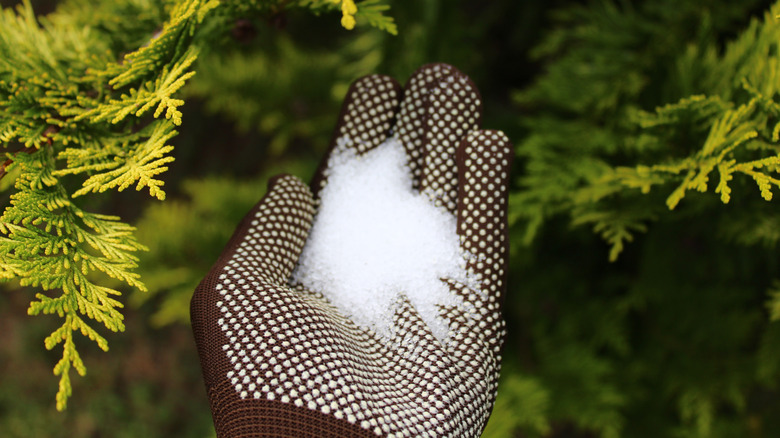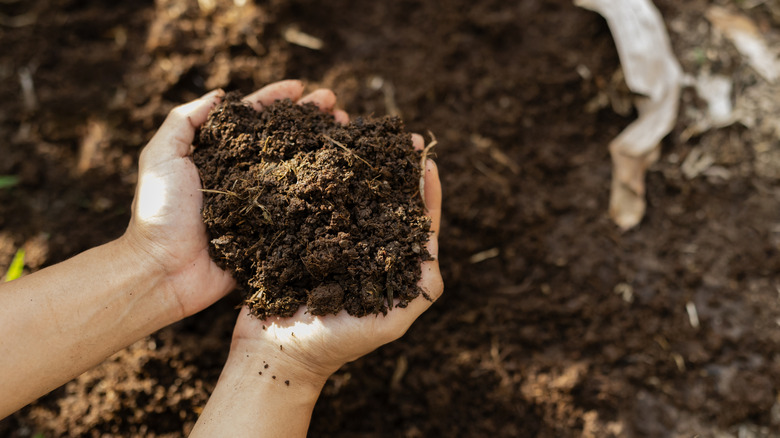Will Epsom Salt Help Increase Acidity In Your Garden Soil?
As most gardeners know, soil is one of the most important factors affecting the overall health and growth of plants. Soil pH, which determines how acidic or alkaline the soil is, is a particular concern if you want a lush, thriving garden. Specifically, soil acidity matters because some plants, such as rhododendrons, blueberries, blue hydrangeas, and camellias, require more acidic soil because it allows them to access necessary nutrients more easily.Epsom salt, also known as magnesium sulfate, is often recommended as an inexpensive way to increase soil acidity. Since many of us have it in our bathroom cabinets, it certainly seems worth a shot. Unfortunately, while it can be an excellent source of magnesium and sulfate for plants, applying Epsom salt to your soil won't actually help your acid-loving plants.
That's because this naturally occurring compound can't change soil pH. The pH scale ranges from 0 to 14, with a pH of 7 indicating a neutral substance. Lower numbers designate acids, and higher numbers represent alkaline substances. In short, Epsom salt has a relatively neutral pH, so it doesn't affect soil acidity in a significant way. Instead, it works best as a fertilizer if your soil lacks magnesium or sulfate. If you need to increase your soil's acidity, the best amendments are usually elemental sulfur and aluminum sulfate.
What Epsom salt can do for your plants
While it isn't an effective way to make your soil more acidic, incorporating Epsom salt does have benefits for soil health. It is an especially effective source of magnesium, an essential nutrient that plays a role in photosynthesis to feed plants. It also aids in seed germination and nitrogen and phosphorus absorption, which are other vital plant nutrients. Additionally, Epsom salt provides sulfate to soil. Sulfate is a form of sulfur, but it is the only type that plant roots can actually absorb. As a macronutrient, plants require sulfur for several key processes, including boosting chlorophyll production and photosynthesis. It also helps plants get the most from other nutrients, including nitrogen, potassium, and phosphorus.
The best way to determine whether your soil lacks magnesium or sulfate and requires Epsom salt is to conduct a soil test. You can buy a testing kit at many garden centers and hardware stores. However, you'll usually get more accurate results if you test through your local county extension office.
Amendments like elemental sulfur or aluminum sulfate are most effective for lowering soil pH. Elemental sulfur takes longer to alter soil pH because it requires bacteria to break it down into sulfuric acid. The results don't last long either, so you'll need to reapply. On the other hand, aluminum sulfate works almost instantly because it is water-soluble, converting to sulfuric acid as soon as it is absorbed. For the best results, work both amendments into the soil with a shovel or other tool before planting.

